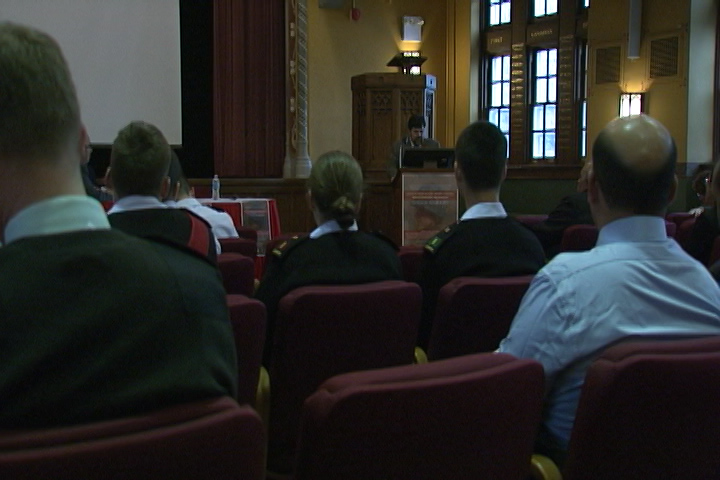Royal Military College in Kingston is hosting a two-day conference, on Thursday and Friday, examining the history of peacekeeping and exploring the lessons learned and how that can be applied in the future.

Peacekeeping is a radically different venture today than when it began 60 years ago to deal with the Suez Canal Crisis.
The move to de-escalate the situation in Egypt by using the first large-scale United Nations peacekeeping force earned former Canadian prime minister Lester B. Pearson the Nobel Peace Prize and solidified Canada’s reputation as a peacekeeper on the global stage, according to Kevin Brushett from the history department at Royal Military College,.
“To be, in some ways, a bit of a helpful fixer and to step in, in a situation where our allies, the British, the French, including the Americans, had gotten themselves into a pickle.”
In 1956, Canada stepped in when the world appeared to be on the brink of war after Egypt seized control of an important shipping route, the Suez Canal. France, the United Kingdom, and Israel launched attacks on Egypt prompting the Soviet Union to threaten to use nuclear weapons on the west.
At the United Nations, Pearson proposed a solution. The British and French would withdraw from the region but a United Nations force would remain in the area, stabilizing the situation.
Over the decades the role of peacekeeper changed, most notably with the collapse of Yugoslavia.
Peacekeepers went from policing to dealing with hostile forces in the midst of a civil war during the 1980s and 90s when Howard Coombs, an assistant professor at RMC, was stationed there.
“A lot of the individuals at the time did not see any agreement as binding on them and that the UN forces were just an impediment at the end to carrying on with their own agendas.”
Which included war crimes like ethnic cleansing.
Coombs believes that experience and others, like Canada’s role in Afghanistan, leaves the country in good stead moving forward.
“We have a force that’s better educated, it’s better trained, the training standards for these types of operations are centrally directed by Ottawa to fit the mandate.”
Prime Minister Justin Trudeau has committed to increasing Canada’s Peacekeeping force.
But with military training focused on Afghanistan for more than a decade, lecturer and professor in the college’s Defence Studies department, Walter Dorn, thinks training and education for soldiers on peacekeeping missions will have to be adjusted.
“The Afghanistan mission was quite different from peace operations so both our experience and our training has not prepared us at this point for peace operations.”
Dorn says there are lessons from Afghanistan that can be applied but peacekeeping is a very different mission.
“When you’re under UN rather than NATO, you’re under different rules of engagement, you’re thinking of the political solution.”
We may get a bit more clarity on Canada’s role in peacekeeping later this month as representatives from more than 80 countries will be meeting in Vancouver for the 2017 UN Peacekeeping Defence Ministerial conference.




Comments